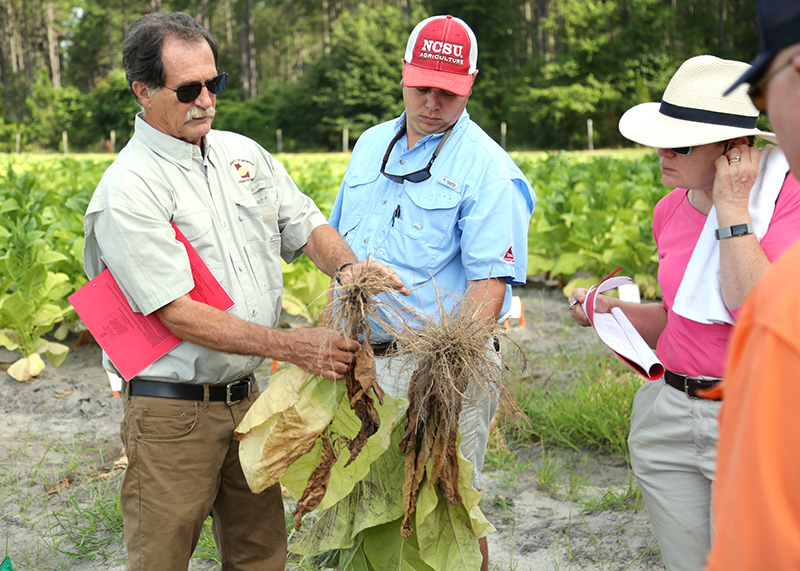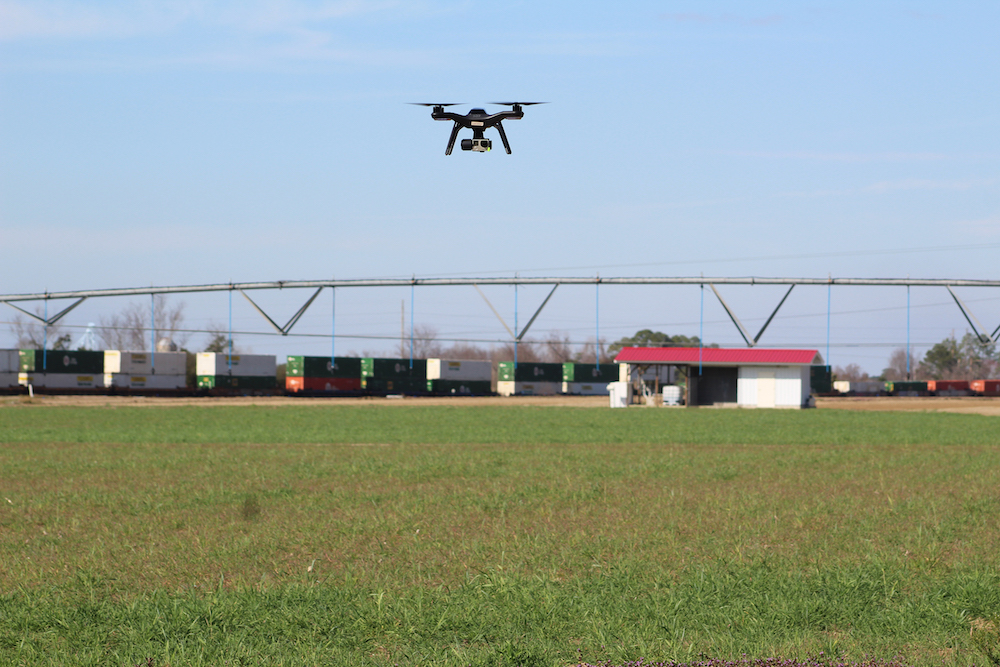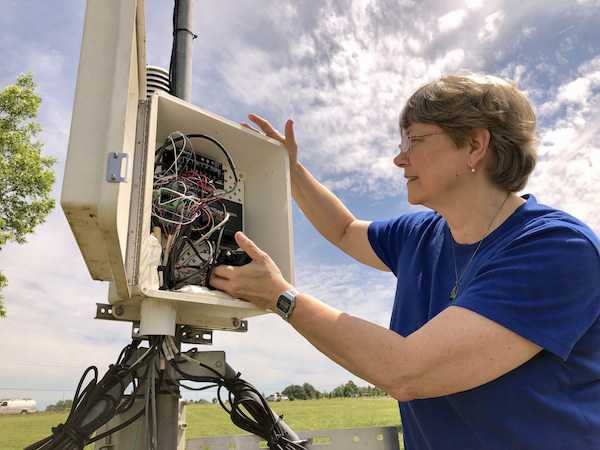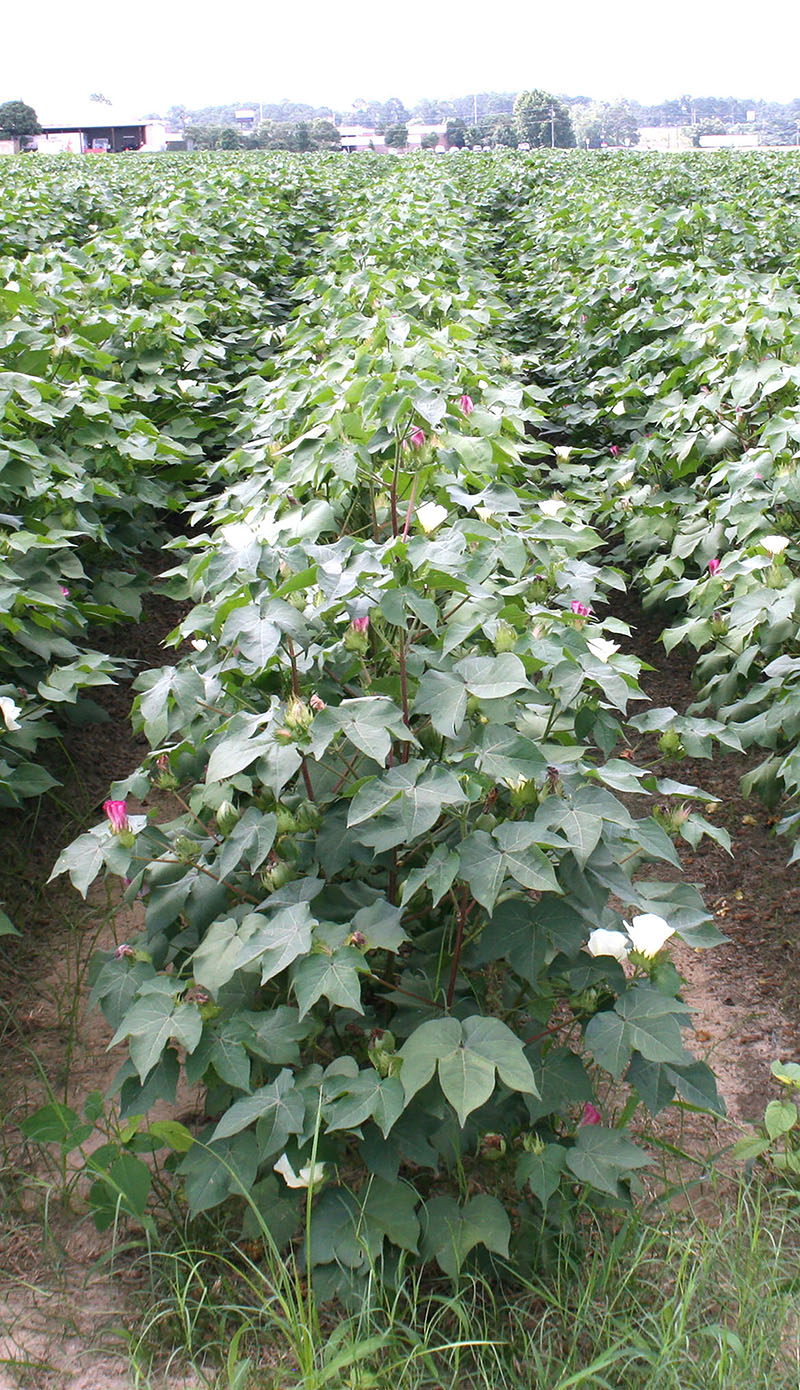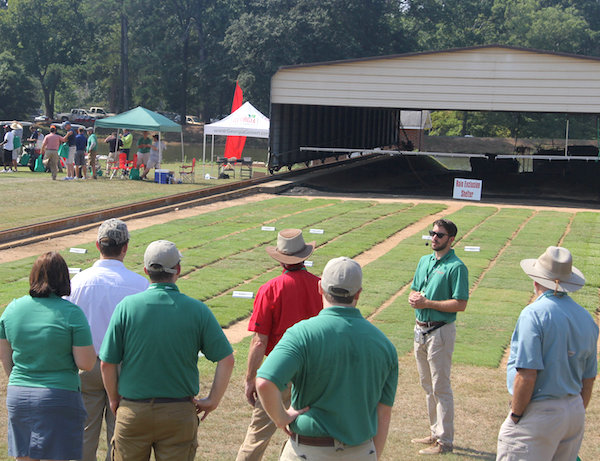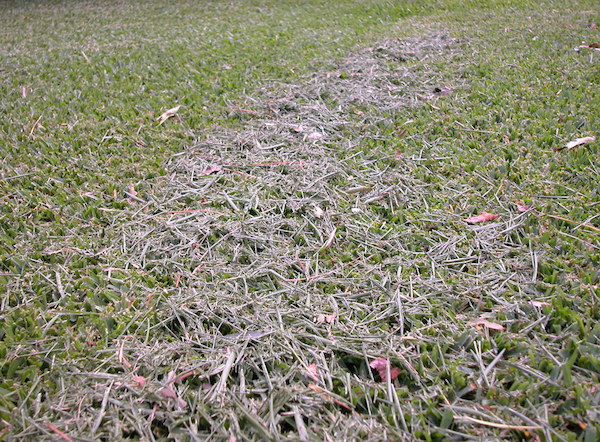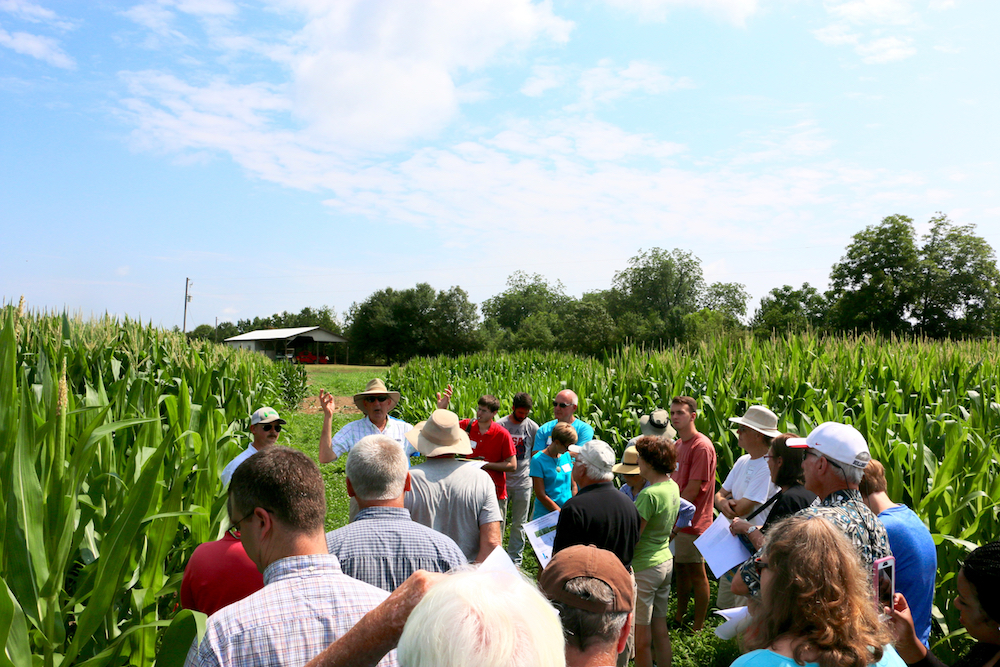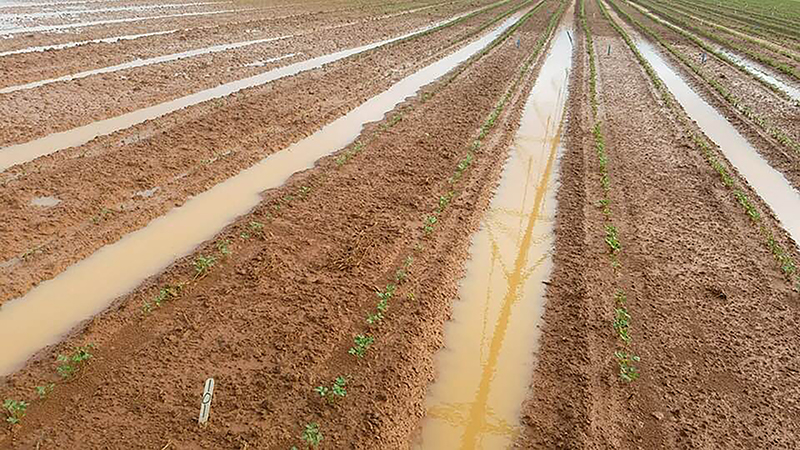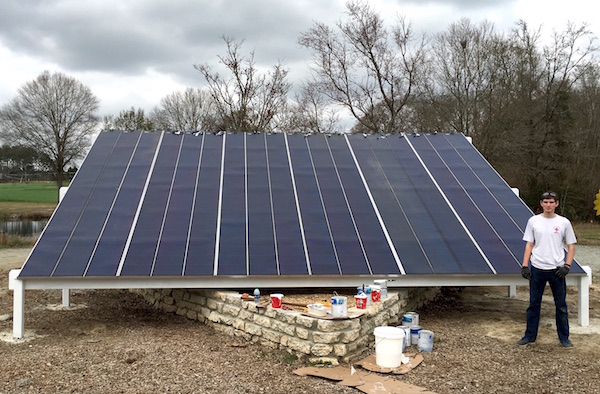 CAES News
CAES News
Solar Panels
This year, two additional solar panels were installed at the Future Farmstead, a water- and energy-efficient research home on the University of Georgia Tifton campus, as part of a project by Eagle Scout Bailey Veeder of Athens, Georgia.

